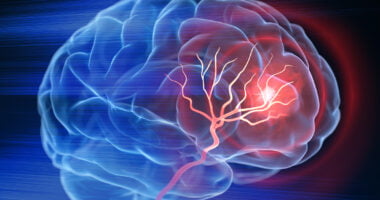 4 Unusual Warning Symptoms of Pancreas Cancer
4 Unusual Warning Symptoms of Pancreas Cancer
The pancreas is an organ situated in front of the spine and behind the stomach. It performs two main functions: produces enzymes that help with digestion; and releases hormones that control blood sugar. Pancreatitis is a disease in which the pancreas becomes inflamed. There are two types of pancreatitis acute and chronic pancreatitis. TheHealthSite.com spoke to Dr. Ramesh Kumar, DM MD, HOD Department of Gastroenterology, AIIMS, Patna to understand all about this condition and the most common and warning symptoms.
Acute pancreatitis is a sudden inflammation that lasts only for a short time. Most people with this condition can recover completely after receiving the appropriate treatment. In some patients, acute pancreatitis can progress to severe disease and can cause serious complications like infections, pancreatic fluid collection, bleeding, and organ failure.
Acute pancreatitis can be a rare initial presentation of pancreatic cancer. Many studies have found an association between pancreatic cancer and acute pancreatitis. Most of these patients are diagnosed with pancreatic cancer within a few months after acute pancreatitis. Pancreatic cancer is the seventh leading factor in cancer deaths worldwide. Only about 15% of pancreatic tumors are curable at diagnosis, limiting five-year survival to only 8%. To improve pancreatic cancer outcomes, early detection of tumor is essential. However, this is difficult due to a lack of early disease-specific symptoms.
Chronic pancreatitis, on the other hand, is a long-term inflammation in the pancreas. Generally, it may happen after an episode of acute pancreatitis. However, there are other risk factors for chronic pancreatitis.
- Heavy alcohol consumption and smoking are frequently associated with chronic pancreatitis.
- Smoking cigarettes is estimated to be the root cause of about 25% of pancreatic cancers.
- Patients with pancreatic cancer are more likely to be obese.
- People with diabetes are more likely to get pancreatic cancer. It is unclear why this is the case. Most of the risk is present in type 2 diabetics.
- The likelihood of developing pancreatic cancer increases with age, and it is uncommon to find pancreatic cancer in children.
- Chronic pancreatitis, a long-term inflammation of the pancreas, is linked with an increased risk of pancreatic cancer, and around 5% of patients with chronic pancreatitis develop pancreatic cancer
Symptoms of Pancreatic Cancer
Some of the warning symptoms associated with this condition include:
- Pancreatic cancer may be clinically silent during the initial period. The symptoms that may be seen are:
- Discomfort in the back that originates in the abdomen
- Appetite loss or unintentional weight loss, and
- Jaundice with itching
Diagnosis
Pancreatic cancer can be suspected on abdominal ultrasound, CT scan, or other abdominal imaging modalities. However, a definitive diagnosis requires tissue from the tumor. Biopsies can be conducted using a variety of techniques:
- Percutaneous needle biopsy: A radiologist inserts a needle into the mass and extracts a small amount of tissue while under the direction of imaging. This procedure is often referred to as image-guided fine needle aspiration.
- Endoscopic ultrasound-guided fine needle biopsy.
- ERCP-assisted cholangioscopy- High-resolution imaging and therapy can be performed during an endoscopic retrograde cholangiopancreatography procedure to target biopsies.
Treatments
Surgical therapy is usually curative when cancer is detected during an early stage. Chemotherapy is offered in an advanced stage. It is a type of cancer treatment in which medications are used to either kill or stop the division of cancer cells in order to stop the growth of cancerous cells. Chemotherapy can be given intravenously, intramuscularly, or orally to cancer cells anywhere in the body.
- Targeted therapy is a method of treatment that uses drugs or other substances to locate and eradicate specific cancer cells.
- Radiation therapy is a sort of cancer treatment in which high-energy x-rays or other types of radiation are used to either kill or prevent the growth of cancer cells. It can be used in some pancreatic cancer patients. Home










